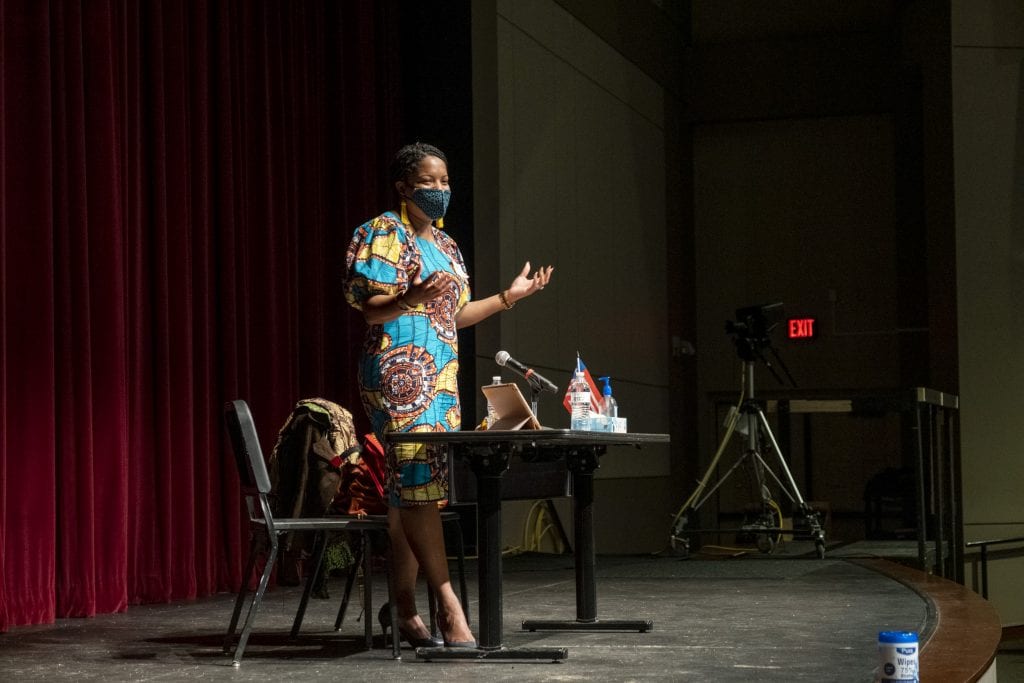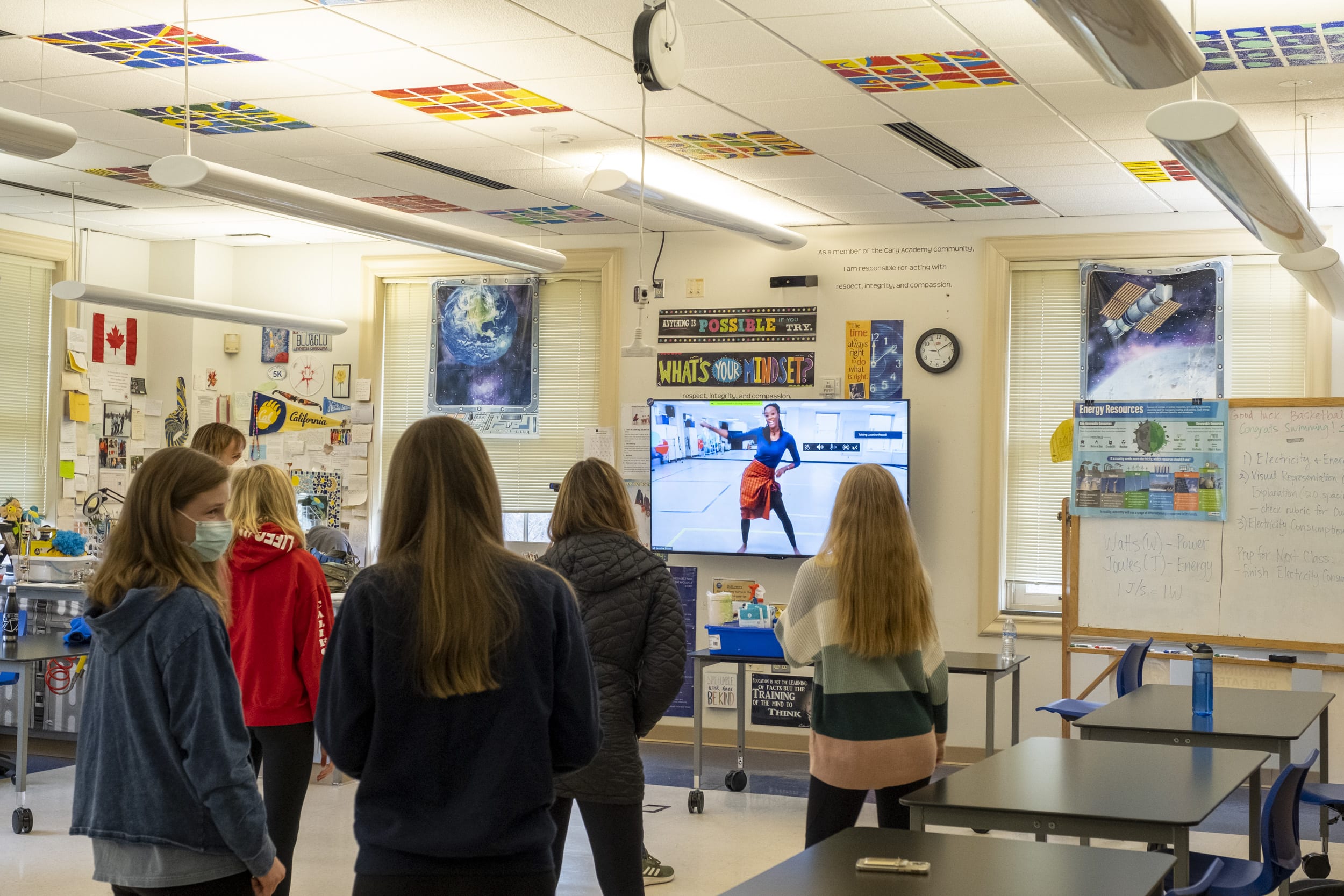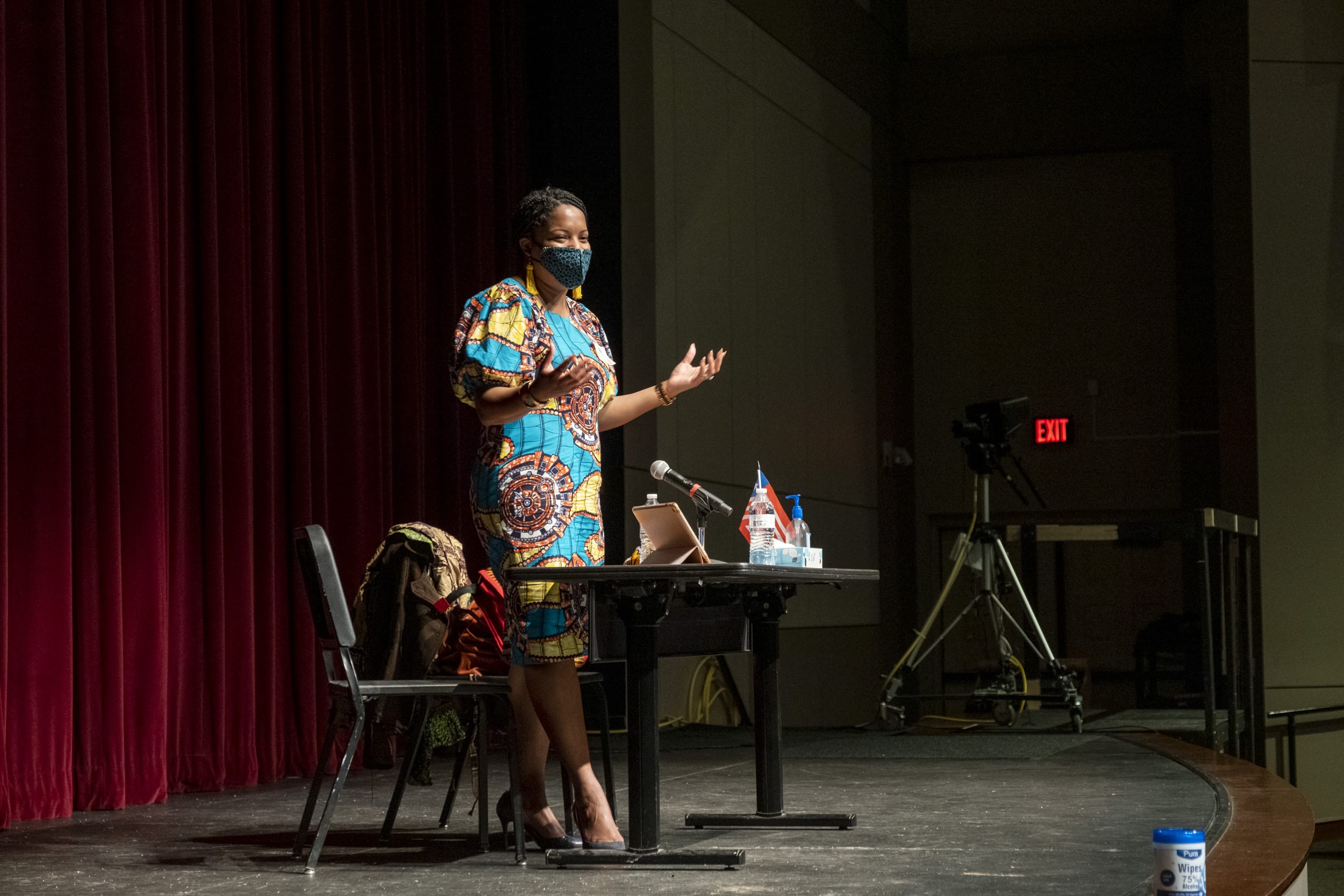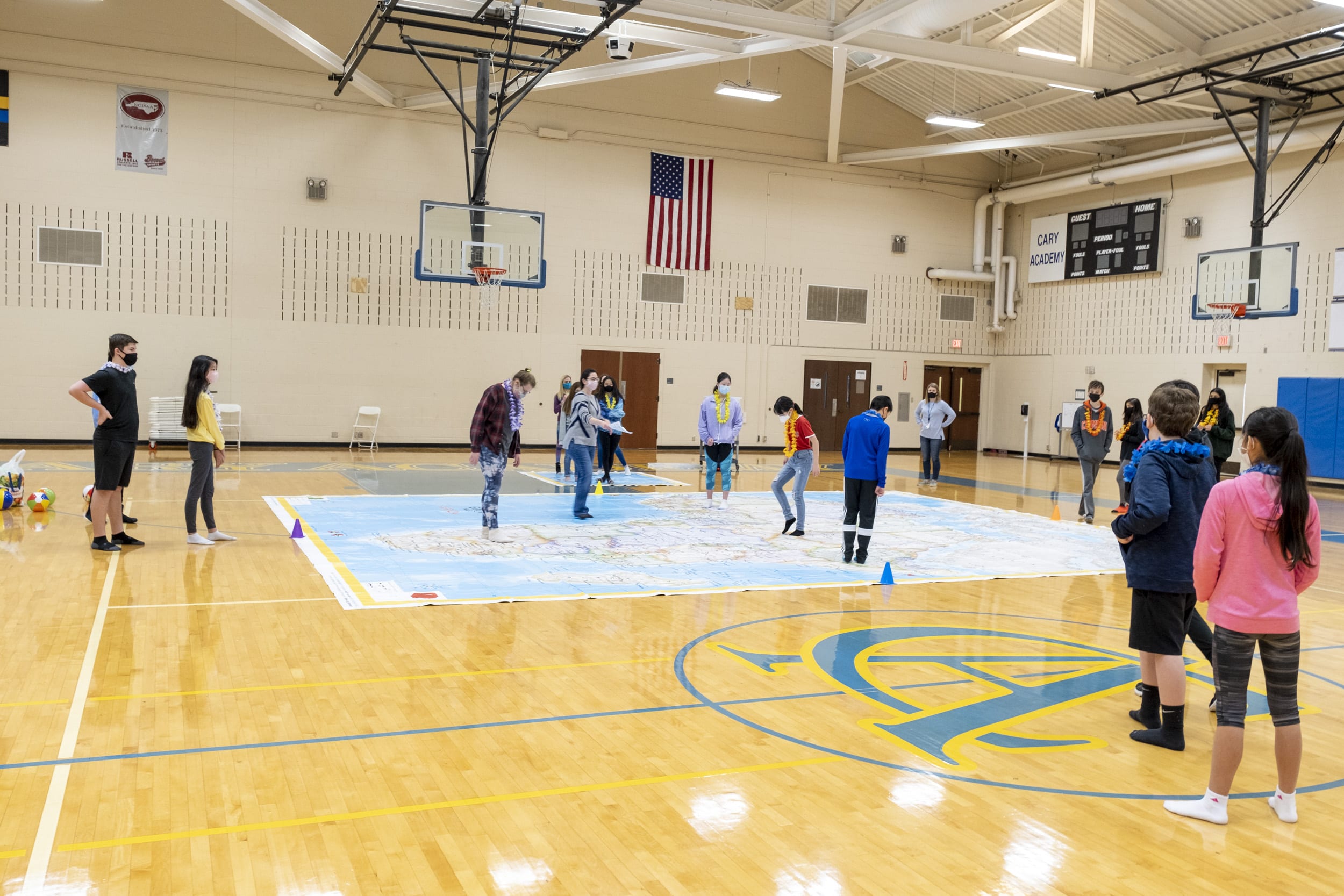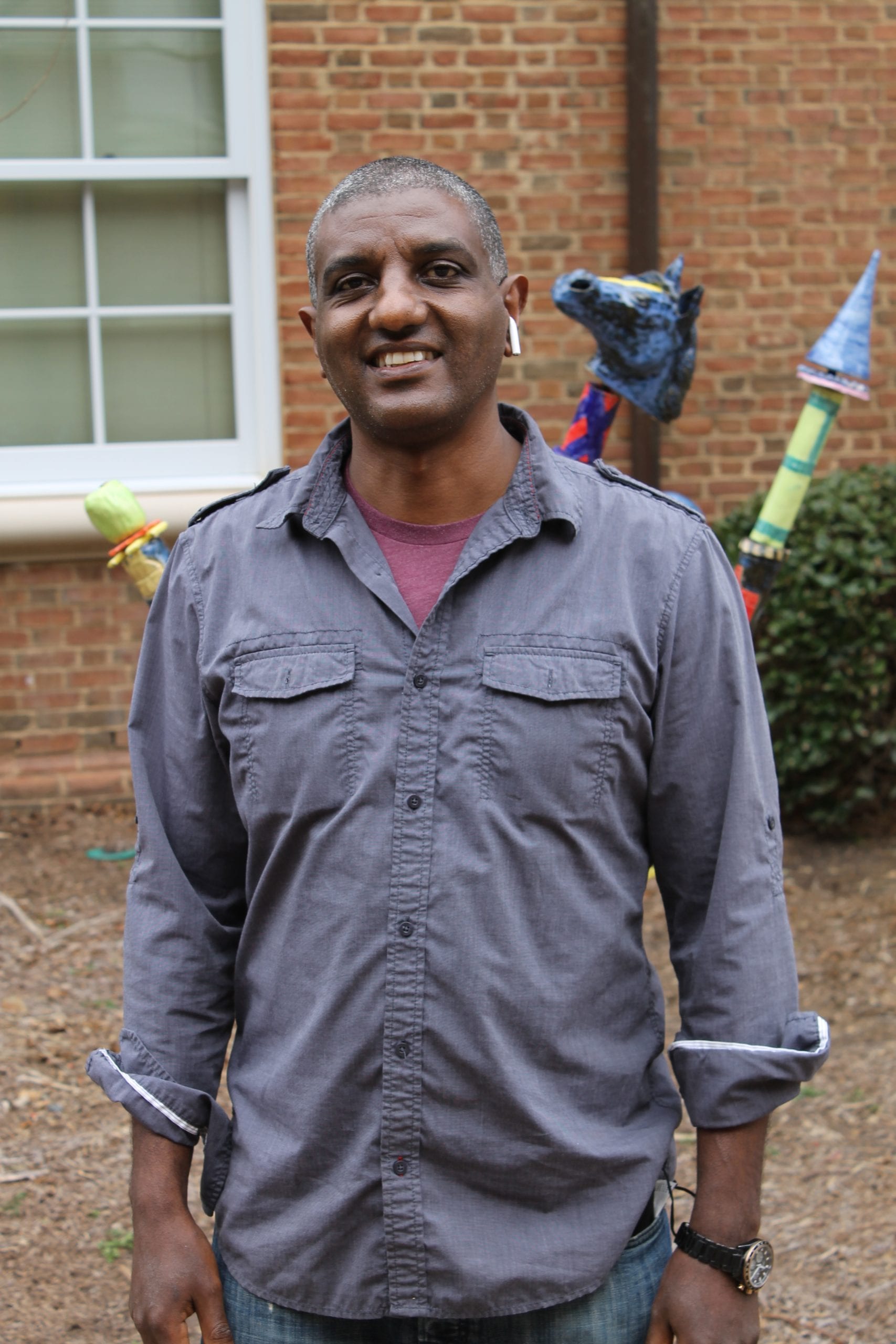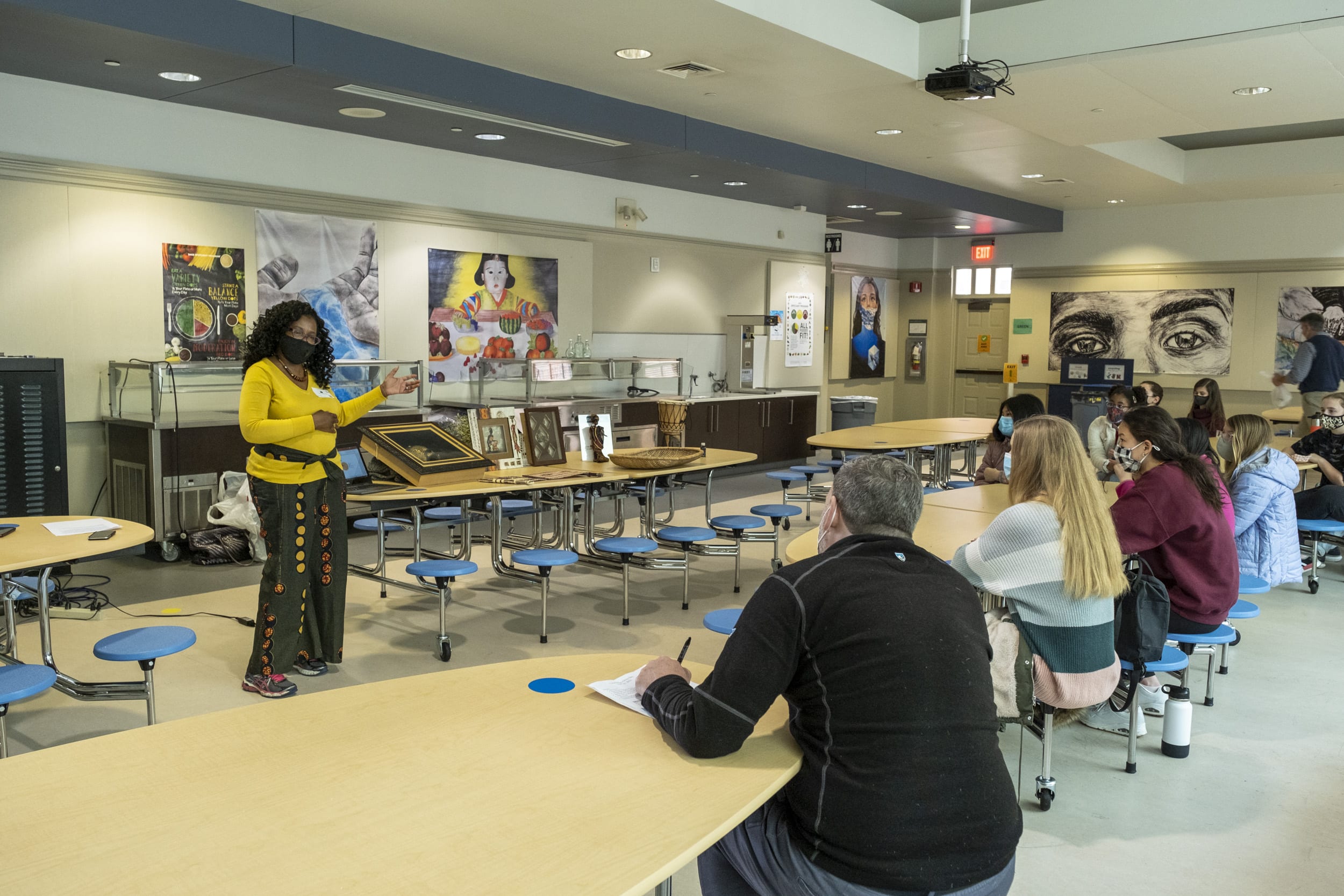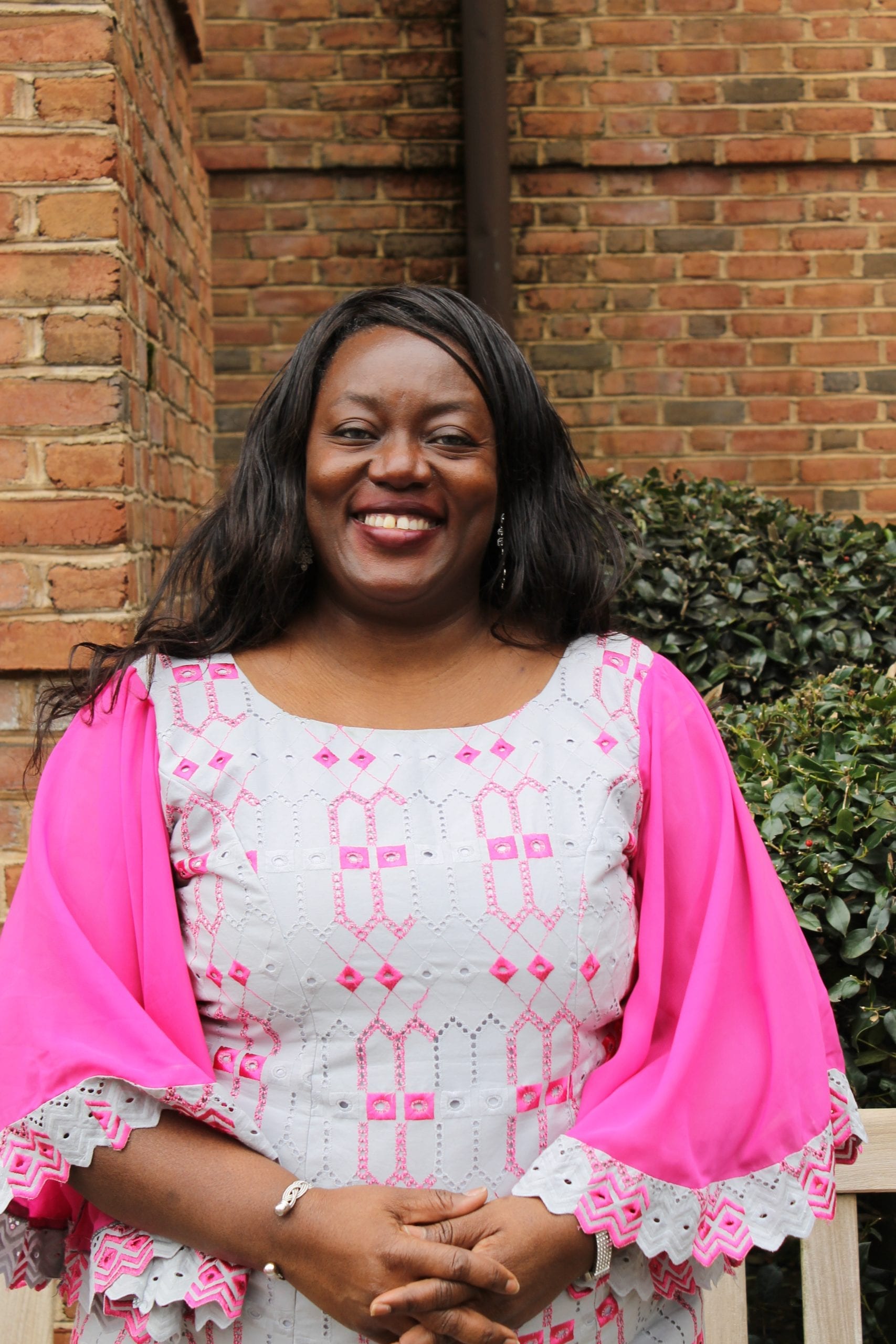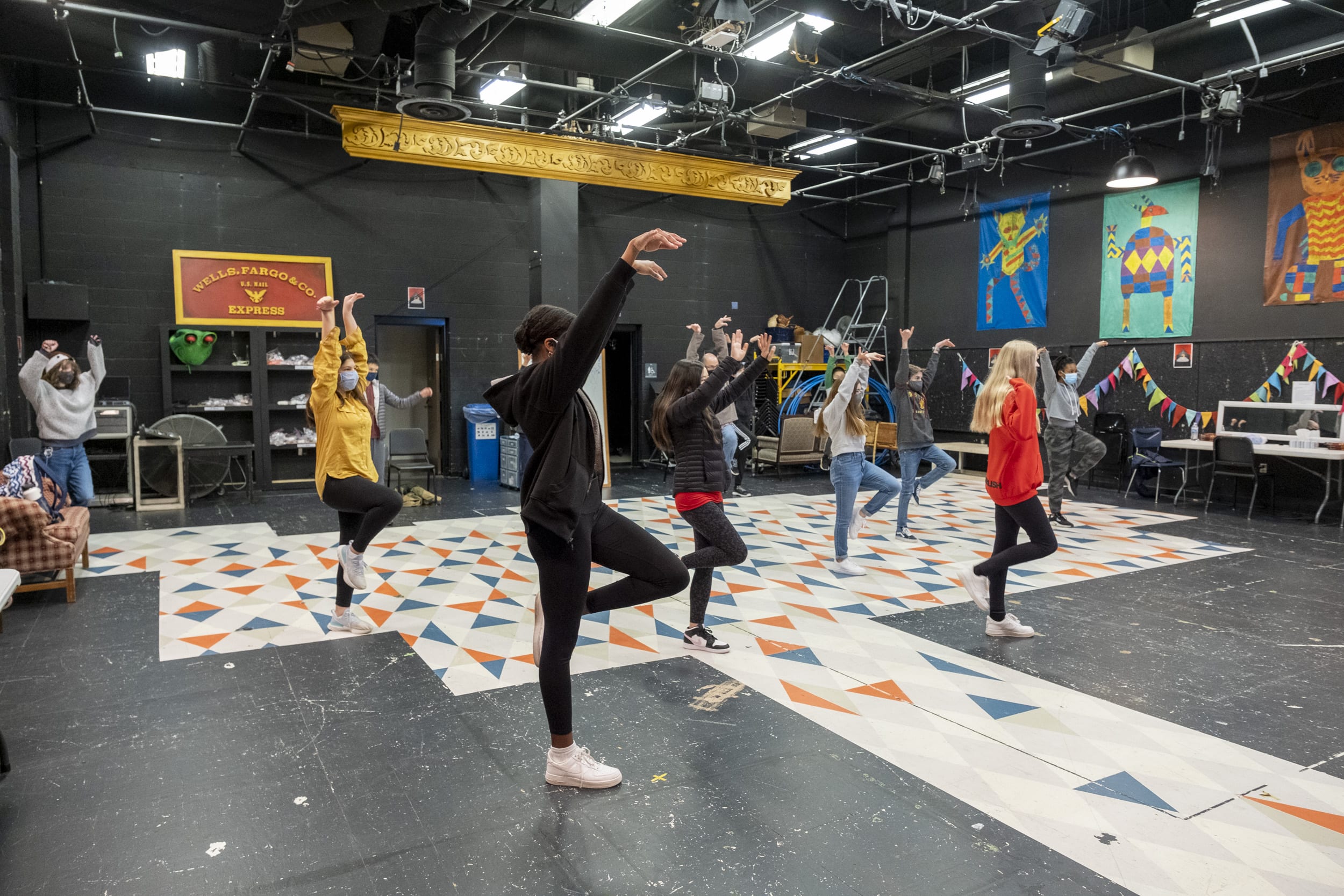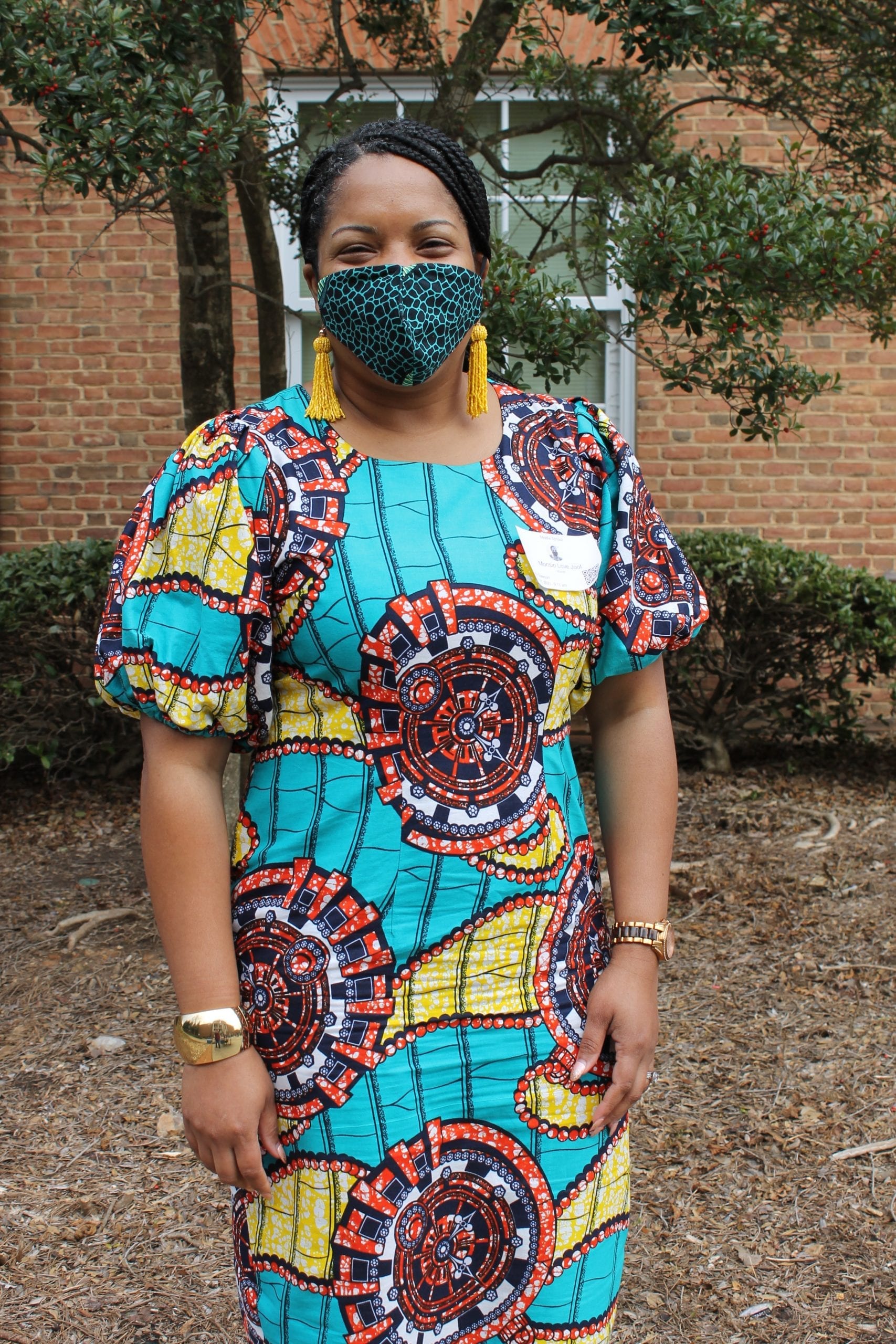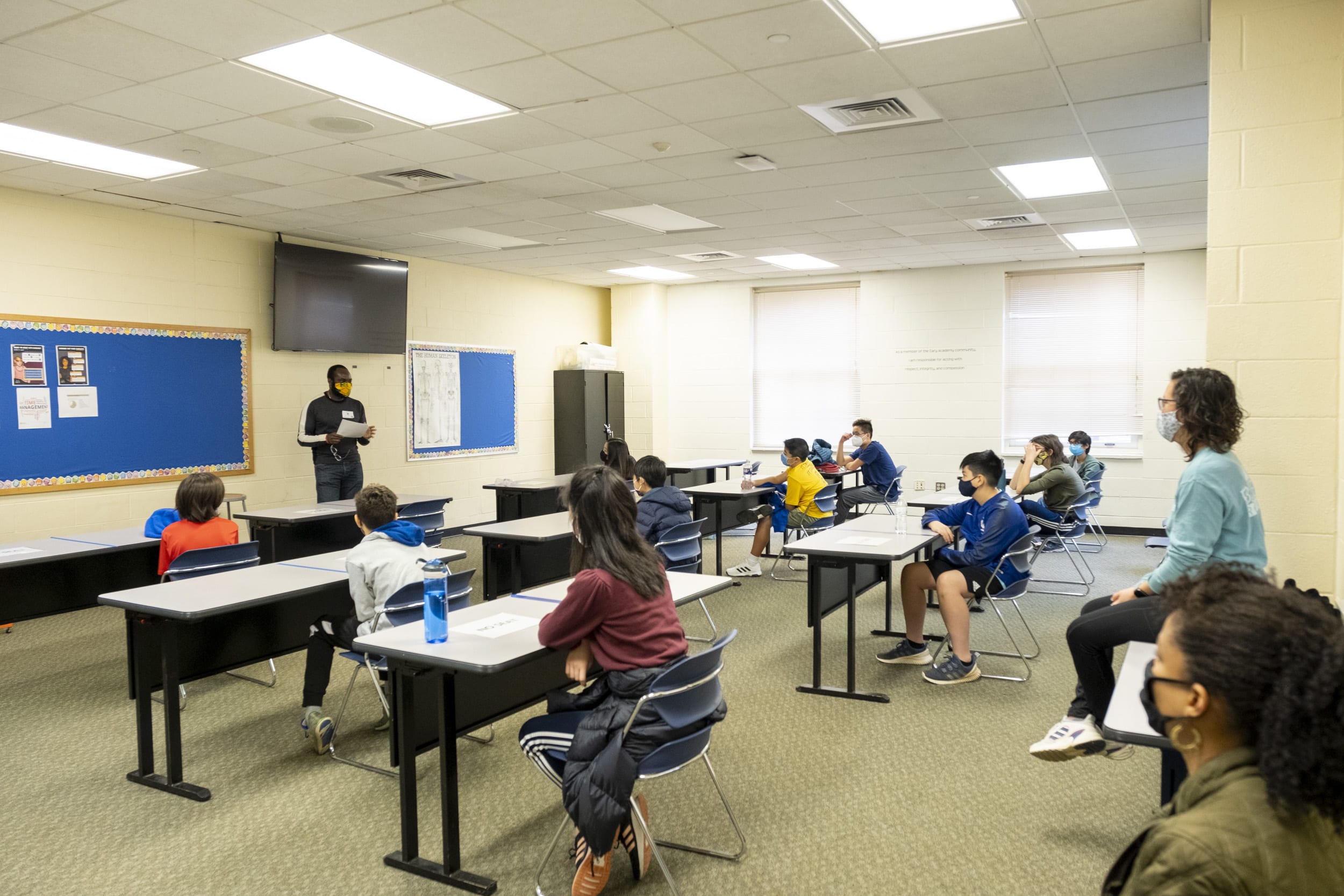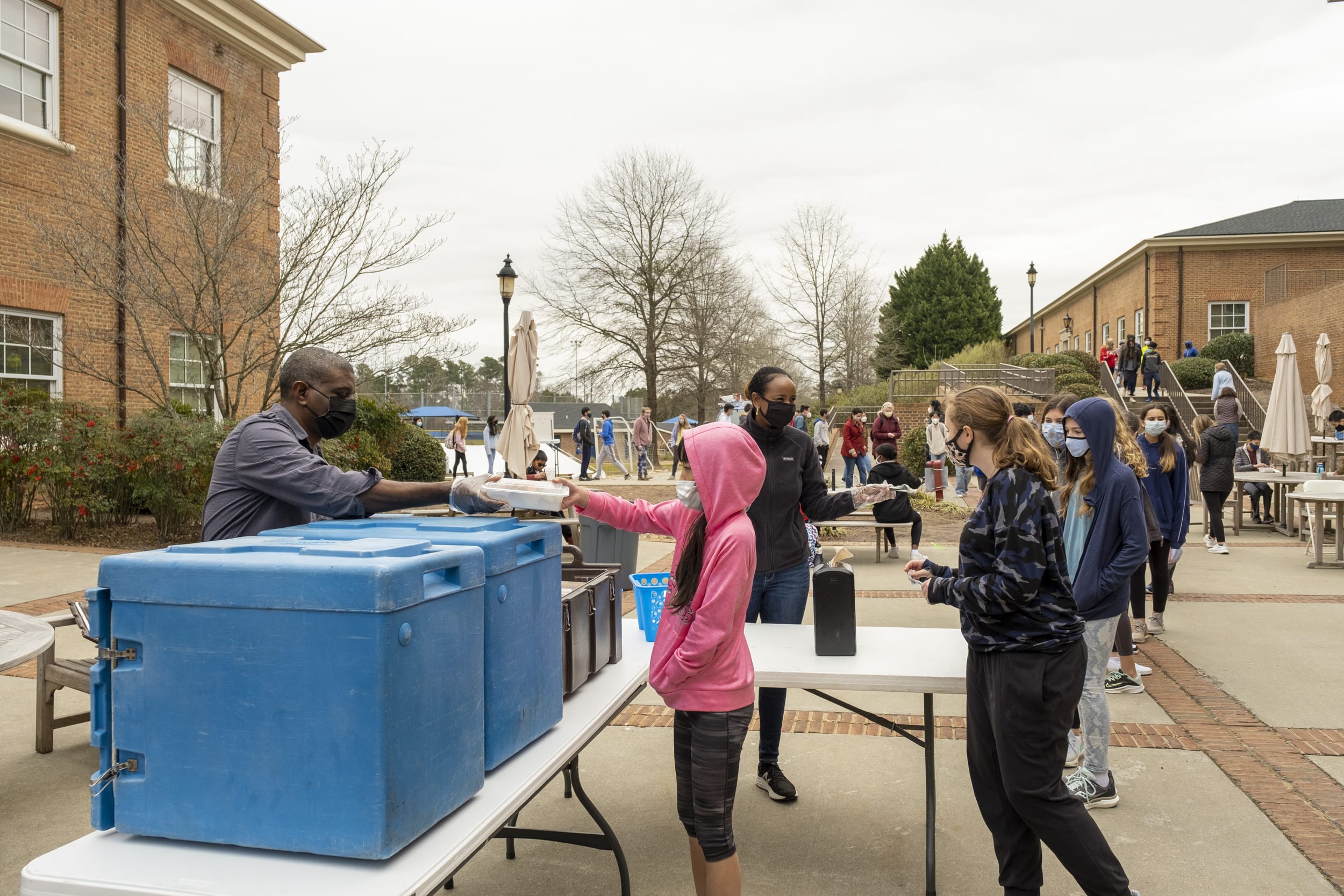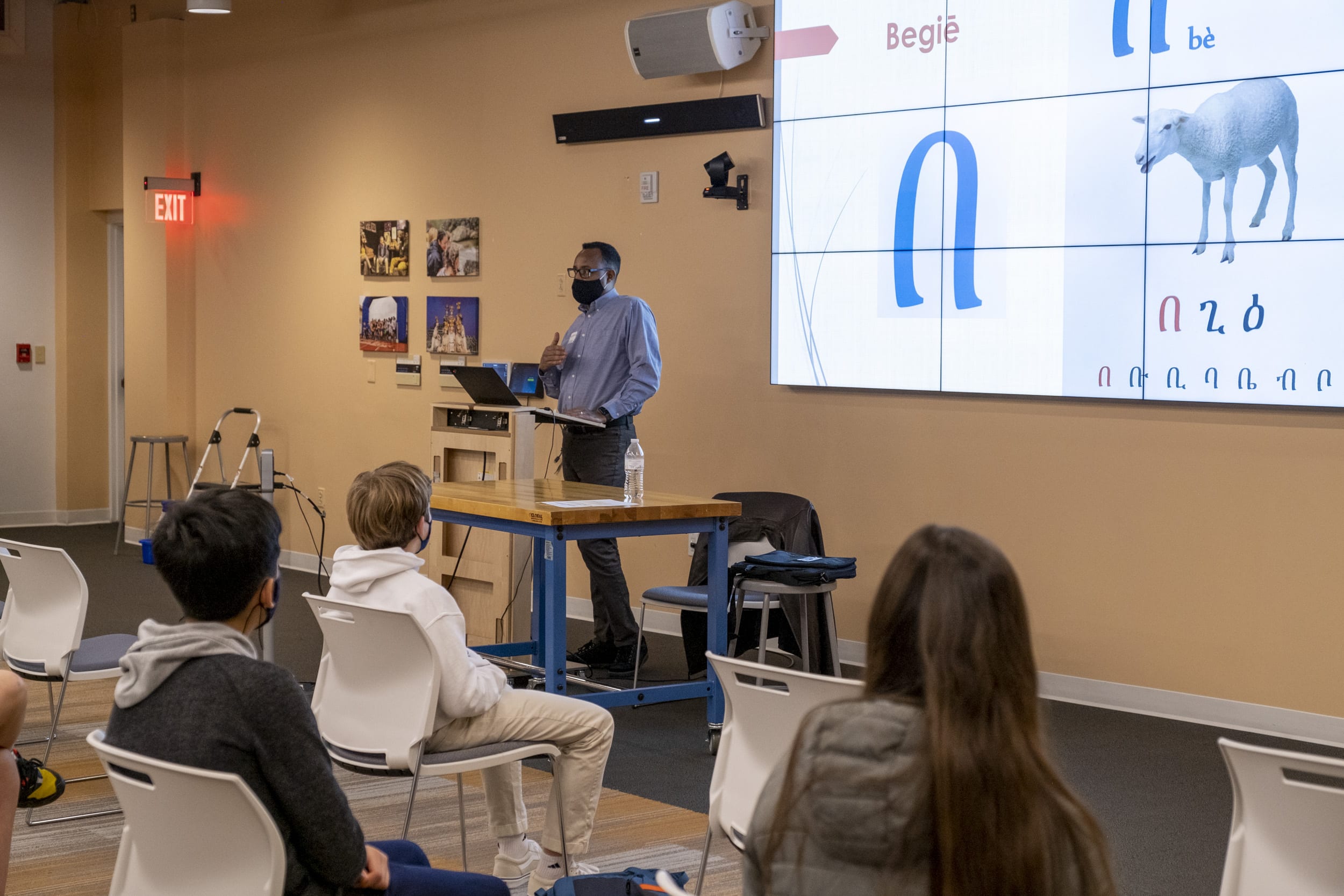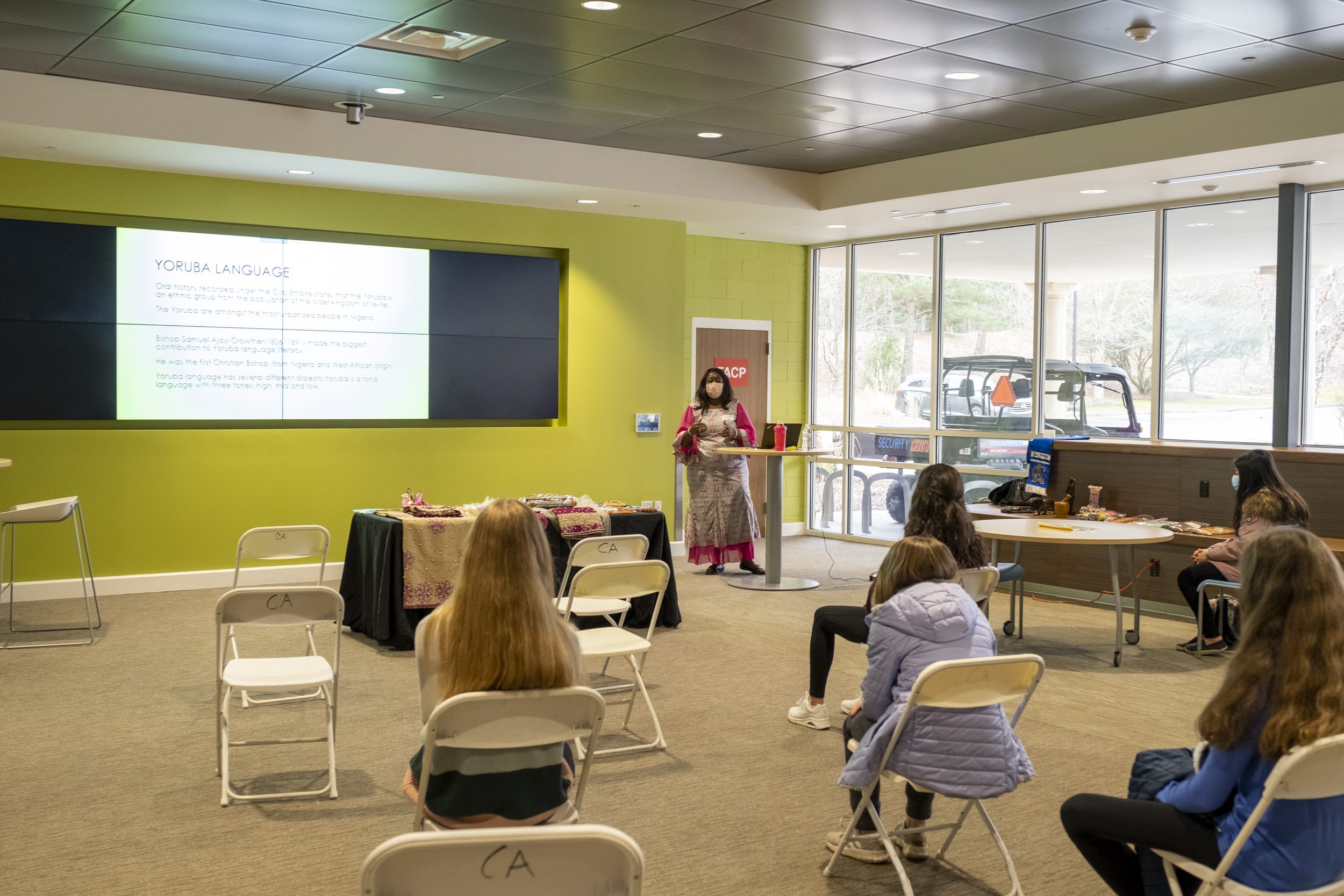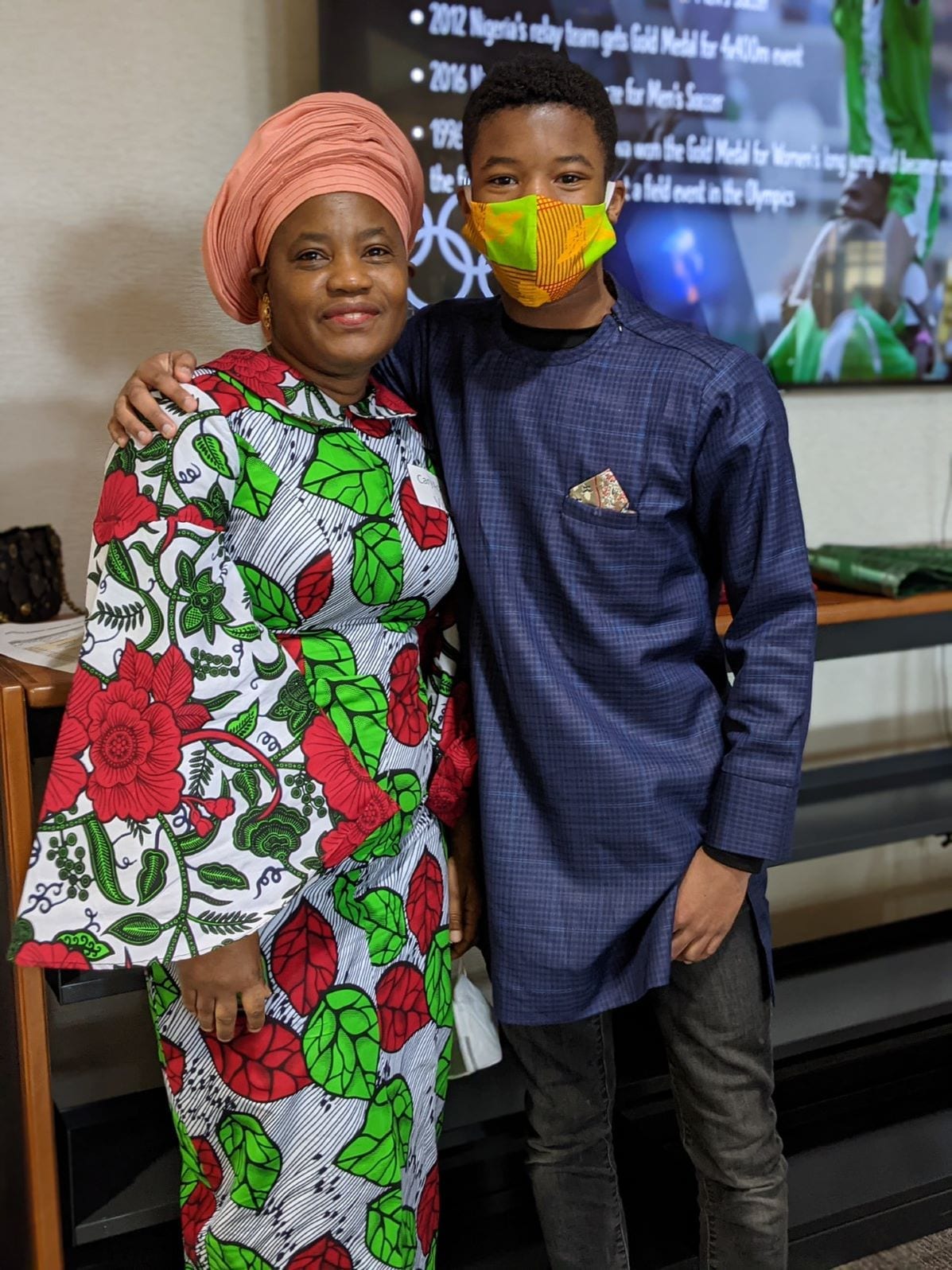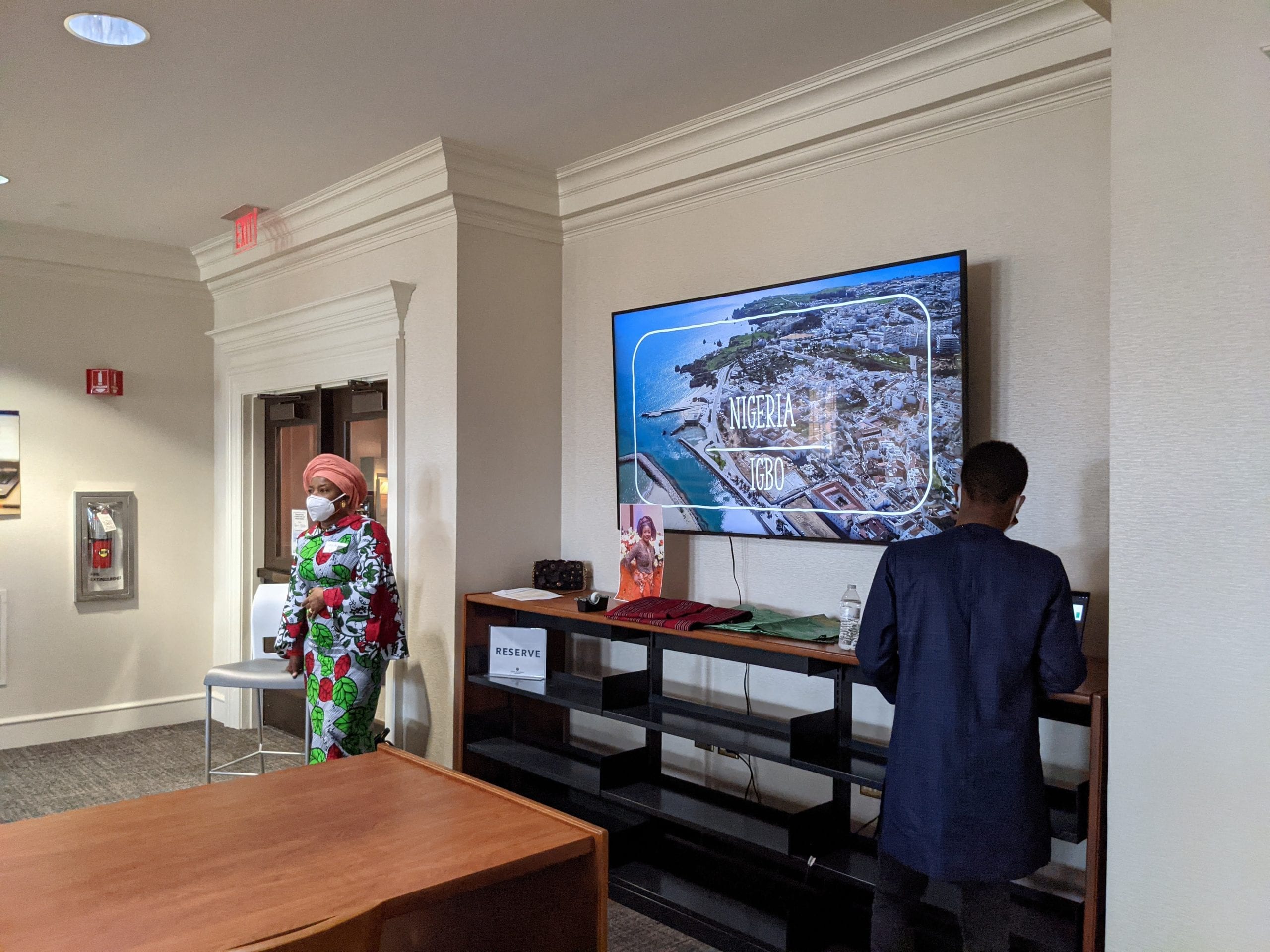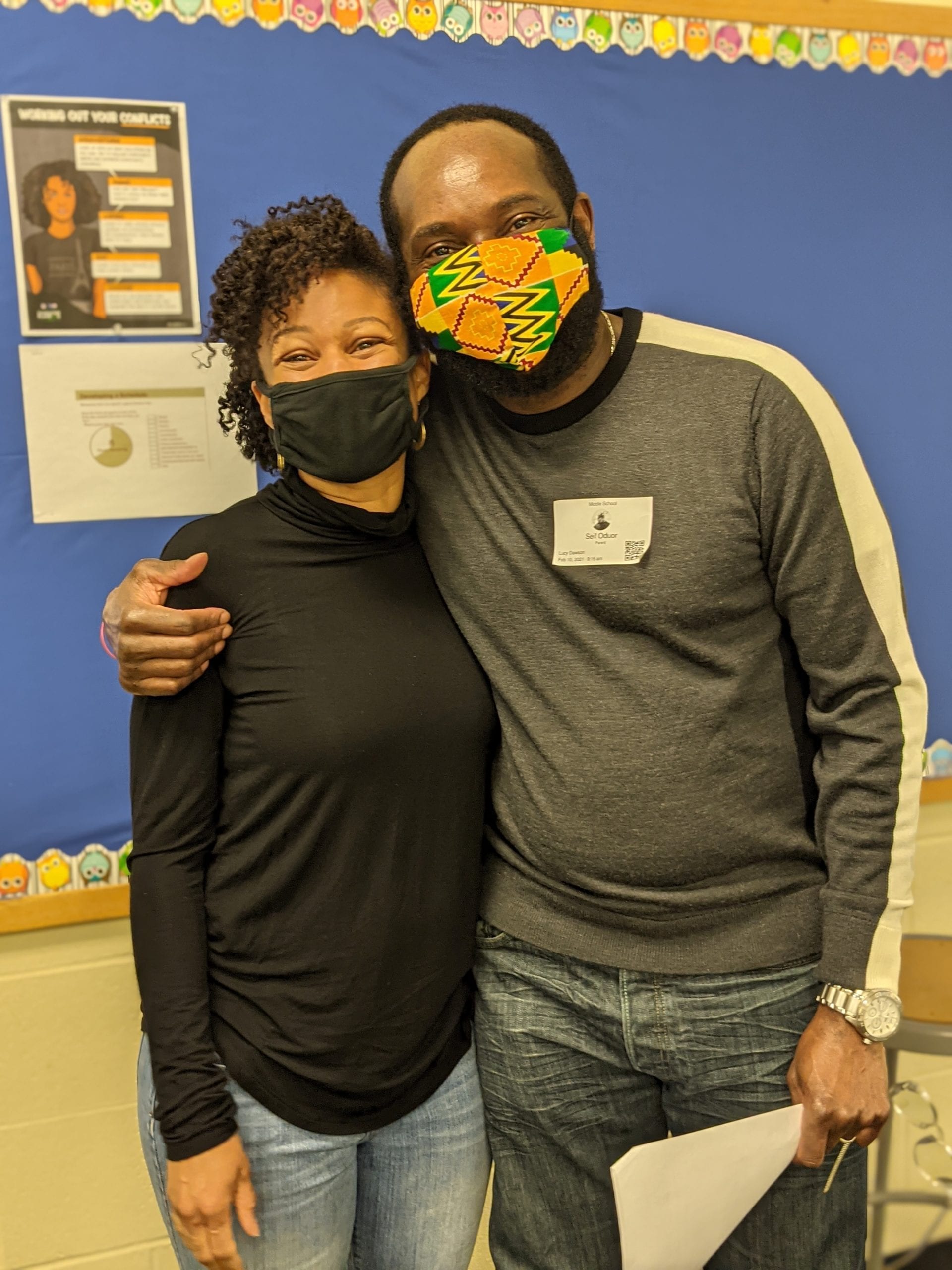Too often—whether in the news or media representation in movies and television and beyond—Africa is presented in monolithic, flattened, and exoticized terms. These racist and otherwise damaging narratives flatten and stereotype the African experience, failing to reflect the rich history and diverse peoples and cultures represented on the continent.
At CA one of our primary goals in world history is to upset such narratives, to instill in our students a mindset of genuine, respectful, and ethical curiosity about other cultures and empathy for other people. Through rich opportunities for in-depth exploration and discovery, we aim to broaden our students’ perspectives and encourage them to develop a more nuanced and intricate understanding of the countries, peoples, and cultures of the African continent.
To that end, earlier this month, we were thrilled to invite our seventh graders to campus for our first-ever annual Celebrate Africa Day. An immersive experience designed to supplement the world history curriculum and study of the African continent, this very special community event was an opportunity for students to move beyond a single story of Africa and its people.
The morning kicked off with great energy and fun, courtesy of dance teacher Jasmine Powell, who led students and advisors in an incredible Zoom dance activity.
Within their advisory groups, students got on their feet to experience Ethiopian “Eskita” celebratory dance, Malian West African “Lengin” rite of passage dance, and Nigerian “Sango/Yemaya” religious dance, among others. Ms. Powell—who has an extensive background in African dance—explained the movements in detail, sharing her vast knowledge about the hidden meanings and purposes of the many dances. It was an energizing and fascinating start to the day.
From there, students rotated in small groups to hear from six different CA family members who each hail from different African countries.
Samson Berhan from Eritrea (father of Bemnet Samson ’26), Chi Ugwa from Nigeria (mother of Ike Ugwa ‘25), Monsio Love Joof from Liberia (aunt of Sam and James Joof ‘24), Memezie Kiadii from Liberia (mother to Tori Kiadii ‘25), Adeola Lawal from Nigeria (mother of Oyinlola Lawal ‘20), and Seif Oduor from Kenya (father of Kai Oduor ’26) shared beautiful artifacts from their home countries, as well as aspects of their culture, languages, and experiences. Students learned about Igbo, Yoruba, and Luhya tribal ethnicities and phrases in Kiswahili and Tigrinya.
Perhaps the most powerful aspects of the presentations were the personal stories about childhood, tight-knit familial communities, and artisanal skills and craftsmanship. We are so lucky to have such incredible diversity within our community and extend a special thanks to all those that were willing to share of themselves, their experiences, and their knowledge so that our students could have such a rich learning experience.
One of the rotations featured a National Geographic Giant Map of Africa, on loan to us from West Forsyth High School teacher Debra Troxell in Winston-Salem. Using a map that spanned half a basketball court, students actively explored the geography of the continent.
In teams, students “tiptoed to Tanzania,” “flew a plane from Cairo to Cape Town,” and dove head-first into the Indian Ocean. In conjunction with their study of Great African Civilizations, students walked the path of the hajj across the Sahara Desert like Mansa Musa, sailed their dhow along the Swahili Coast, and made a powerful posture like Queen Nzinga in modern-day Angola. Not only did students learn more about the countries, cities, and bodies of water in Africa, but they got a chance to more fully appreciate the tremendous size of the continent, as well as the boundless diversity of landforms, climates, rivers, and historical attractions.
The morning ended on a communal and celebratory note with lunch catered by Goorsha, a Durham-based Ethiopian restaurant owned by CA parent Fasil Tesfaye (father of Abben Fasil ’25). Students and teachers got to taste the wonderful cuisine of the horn of Africa, including authentic Injira (Ethiopian flatbread made with teff grains), Zilzil Alecha (beef with garlic, onions, and ginger), and Fosolia (carrots and green beans in a rich tomato sauce). The food was delicious—and very graciously paid for through a generous PTAA grant! It was so wonderful to see the students eating together on the field and patio while sharing reflections on the morning’s events.
To put the day’s events into context, seventh graders have been studying the African continent since early December. We began with the immense size of Africa and the incredible linguistic, topographical, and cultural diversity that the continent contains. We also addressed the way Africa is often portrayed in the media and “the danger of a single story,” a phrase coined by Nigerian writer Chimamanda Ngozi Adichie. We discuss the ways Africa gets flattened into a monolith, both its people and its places, and how we must do the work to seek out many, many more stories to add texture and variety to this singular and problematic narrative.
Students then launched into an annual research project where they chose a Great African Civilization or ruler of their choice. These ranged from the powerful ancient Egyptian and Nubian empires, to the Almoravid’s who conquered the Iberian Peninsula, to the advanced artistic society of the Nok, and many, many more.
Ultimately, the students’ final assessment will include the preparation of a persuasive presentation targeted at the North Carolina Board of Education for why their topic, and Africa in general, should be studied more thoroughly in middle school curricula, as the continent is a woefully undertaught region of the world.
After immersing ourselves in the flourishing and vibrant African civilizations of the 11th,12th, 13th, and 14th centuries, the class then spent several weeks studying the very difficult and sensitive topics of the Atlantic Slave Trade and European Imperialism and Colonization.
We purposefully root this study in the in-depth exploration of such powerful and thriving civilizations as the Mali, Songhay, Great Zimbabwe, and Kingdom of Benin to recognize and honor the humanity of those that would ultimately be violently enslaved and colonized—these were not solely victims, but peoples with long, rich histories, communities, and flourishing cultures that are all too often erased in the face of violent history.
To further personalize these historical events, students read a collection of personal narratives and examine primary source artifacts. In doing so, we aim to amplify the empathy our students feel for the human beings taken from their homes or exploited in their own civilizations.
Our goal is that seventh graders not only learn the facts and figures of the Atlantic Slave Trade and colonization but feel the immense emotional and psychological weight and lasting consequences of this historical period. Throughout this unit students read about resistance to the slave trade and the many brave individuals and groups who fought against this oppression in covert and overt ways.
At the end of the trimester, we will end our study of the continent on a high note, with the independence movements in countries such as Ghana, Kenya, and South Africa. To demonstrate their learning, students will write their own original parables, describing in metaphorical terms how the people and countries of Africa have faced tremendous exploitation and cruelty but have fought with great dignity, perseverance, and success to regain independence and splendor.
We will return to the course-long theme of oppression followed by resistance and positive change and we will continue to inculcate within our students a sense of hope and empowerment to make the world a better place. While the study of world history can at times be difficult and full of despair, we believe it is important to also focus on the incredible collective movements that brought about real progress and our students’ ability to effect change in the world.
In broader terms, our hope is to center a part of the world that is often taught peripherally, if taught at all. Our scope and sequence in world history are meant to clearly send the message that Black lives matter and that Black history matters.
What better way to punctuate this message to our young learners than by devoting a whole day to the continent—by listening to personal stories of our CA family members, by exploring the vast and diverse landscape, by communing together over a homemade batch of Injira, and adding more and more stories to their narrative of an amazing continent.

